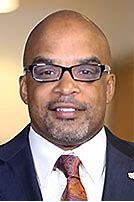
by James A. Bacon
Accelerated by the COVID-19 epidemic, the wrenching restructuring of the higher-ed industry is moving from small, private liberal arts colleges to the weaker public universities. Here’s the latest news from Virginia State University and Radford University.
VSU, a 138-year-old historically black institution, faces a 10% drop in enrollment, big losses in dormitory and cafeteria revenue, and a $26 million operating deficit, reports the Richmond Free Press. President Makola M. Abdullah has told the board of visitors that the university likely will have to dip into its $21 million reserve fund to cover some of the deficit, including debt payments for residence halls and buildings.
Like other historically black higher-ed institutions, VSU has struggled in a marketplace where larger, more prestigious institutions offering more financial aid are competing for African-American students. The university has teetered on the brink of financial collapse before but has always managed to fight its way back. The Northam administration’s response to the COVID epidemic has undermined the business model of every Virginia institution by limiting the number of students who can reside in dormitories, and VSU is no exception.
Meanwhile, Radford University President Brian Hemphill is grappling with an anticipated revenue shortfall. According to the Roanoke Times, one option under consideration is across-the-board cuts that would include salary reductions for all employees, permanent budget reductions for all administrative and academic departments, mandatory furloughs, and a hiring freeze for the entire university.
Alternatively, a strategic restructuring option would include consolidating or eliminating academic departments based on productivity and other criteria. The strategic option is especially interesting. Public higher-ed institutions typically have done zero analysis of departmental productivity (or if they have done it, they haven’t released it to the public). If the COVID-19 epidemic forces university administrations to face up to the realities of mission creep, bloated administrations, and low departmental productivity, it might actually turn out to be a good thing.
Meanwhile, James Madison University has faced the COVID-19 epidemic…. and decided it is more important to address the “epidemic” of racism. President Jonathan Alger told the university community earlier this month that JMU would fill the position, created this spring, of Associate Vice President for Diversity, Equity, and Inclusion this fall “as an exception to the current hiring freeze.”

Leave a Reply
You must be logged in to post a comment.